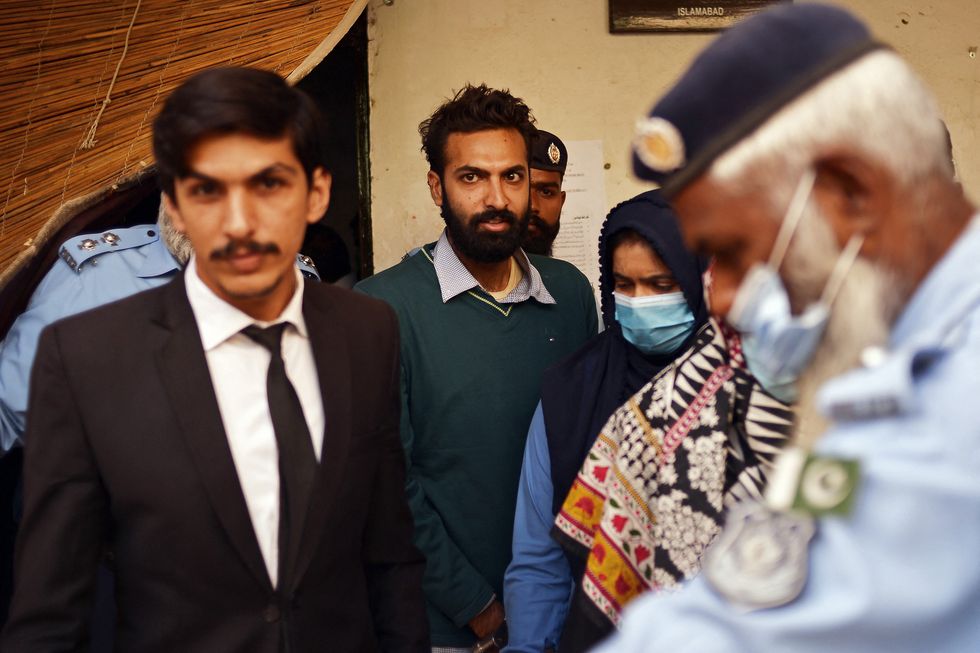Convicted killer in Noor Mukadam case seeks presidential mercy as final recourse
Death row inmate Zahir Jaffer pursues last legal option after Supreme Court upholds sentence for brutal 2021 murder
News Desk
The News Desk provides timely and factual coverage of national and international events, with an emphasis on accuracy and clarity.

Zahir Jaffer, convicted of murdering Noor Mukadam, arrives in a court before the case verdict in Islamabad on February 24, 2022.
AFP
Supreme Court rejected his final appeal in May, upholding the death sentence
Case sparked nationwide protests over accountability for wealthy defendants
Medical evaluation required before mercy petition can be formally submitted
A wealthy businessman's son sentenced to death for beheading a young woman in Pakistan's capital has initiated the process to file a mercy petition with the country's president, his final legal recourse after exhausting all court appeals.
Zahir Jaffer, who was convicted of killing 27-year-old Noor Mukadam in 2021, must undergo mandatory medical and psychiatric evaluations before his clemency plea can be submitted to President Asif Ali Zardari, according to jail authorities. The Pakistan Institute of Medical Sciences has been formally requested to constitute evaluation boards to assess Jaffer's mental state.
In Pakistan's legal system, condemned prisoners can petition the president for mercy after all judicial appeals are rejected—a constitutional provision that serves as the final recourse before execution. The medical evaluation requirement reflects ongoing questions about Jaffer's mental fitness that his defense team raised throughout four years of legal proceedings.
Test case
Mukadam's murder sparked nationwide protests and intense media coverage, with many viewing the case as a test of whether Pakistan's justice system would hold wealthy, connected defendants accountable.
Jaffer, a Pakistani-American whose father owns a major industrial group, killed Mukadam at his family's mansion in Islamabad's upscale F-7 sector after she refused his marriage proposal. Evidence presented in court showed he held her captive, tortured her with brass knuckles, and beheaded her with a sharp weapon.

The Supreme Court rejected Jaffer's final appeal in May, upholding his death sentence for murder while commuting a separate death sentence for rape to life imprisonment. His legal team had consistently argued he was mentally unfit for trial, claims that were ultimately rejected by multiple courts.
Official correspondence from Adiala Jail, where Jaffer is held on death row, shows authorities have been coordinating with medical officials since early July to arrange the required evaluations. The jail's superintendent emphasized the need for expedited action to move the mercy petition process forward.
Final recourse
The mercy petition process typically involves a lengthy review by the president's office, which may consider factors including the convict's mental state, potential for rehabilitation, and the broader public impact of the case. Pakistan has executed relatively few death row inmates in recent years, though it maintains capital punishment for serious crimes including murder and terrorism.
The medical evaluation process is expected to take several weeks, after which Jaffer's legal team can formally submit the mercy petition. The president's decision on clemency would mark the definitive conclusion of one of Pakistan's most closely watched criminal cases in recent memory.







Comments
See what people are discussing